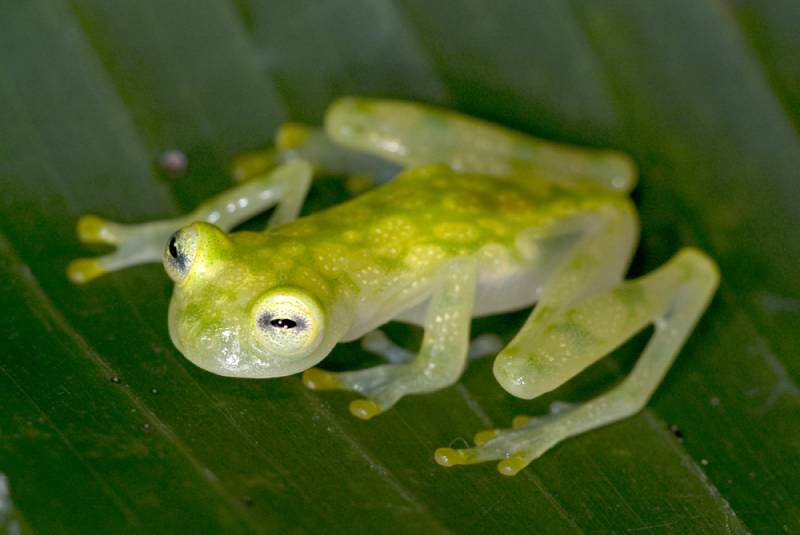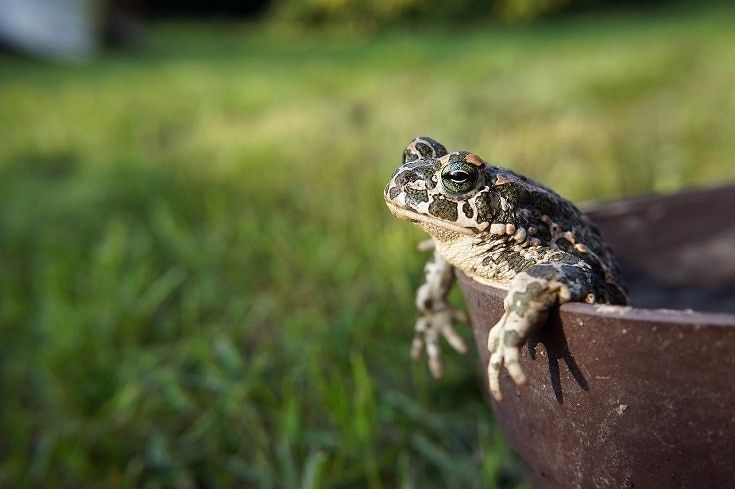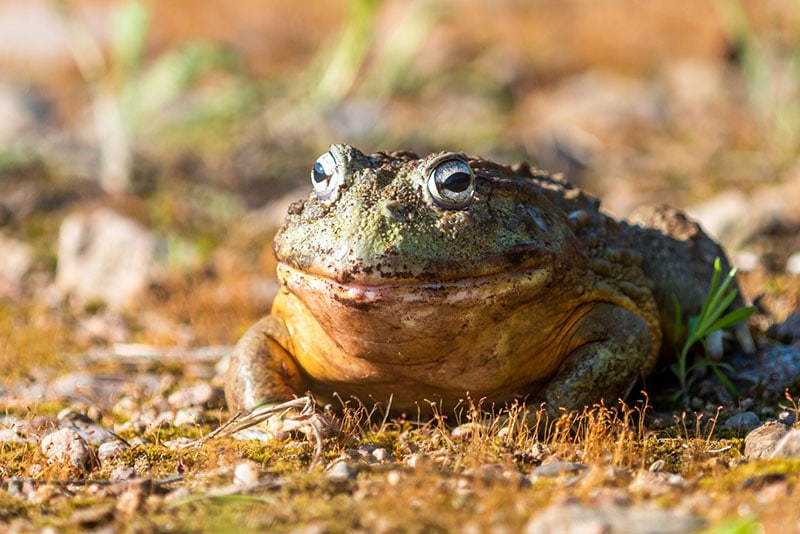Are Frogs Good Pets? Pros, Cons & Things to Consider
By Ed Malaker
Updated on
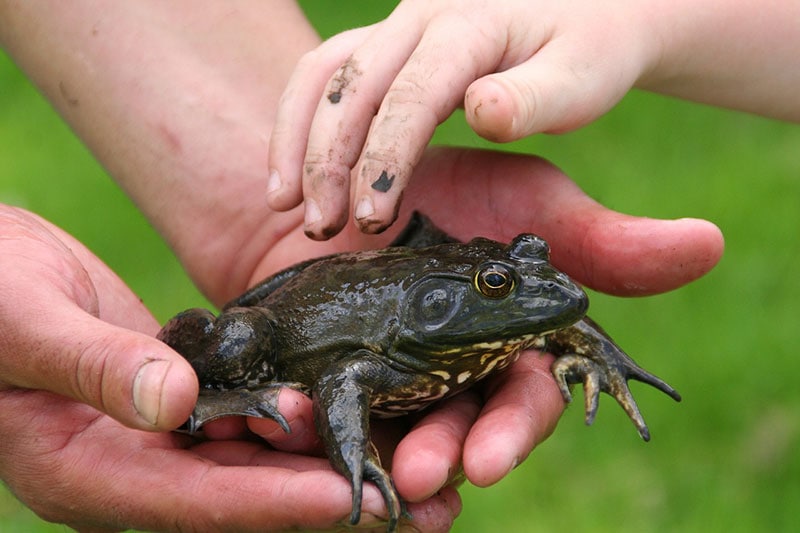
Click to Skip Ahead
When choosing a pet, countless options are available, ranging from conventional choices like cats and dogs to more exotic companions, such as reptiles and amphibians. Among the less-common alternatives, frogs often pique the curiosity of pet enthusiasts, and many people wonder if they make good pets. Frogs can be an interesting pet, but they aren’t considered safe for everyone. If you are thinking about getting one for your home, keep reading as we discuss their pros and cons to help you determine if they are right for your family.
Please note that many states and jurisdictions may have legislation that prevents capturing or owning frogs. Always make sure you have the permission to legally own an exotic pet before deciding to adopt one. If you are in the US, please refer to state laws before deciding to adopt an exotic or wild pet. Elsewhere, please refer to relevant jurisdictions in your area.
Capturing wild animals is not advised, as this disrupts local ecosystems. In addition, amphibians may naturally harbor Salmonella and spread it to humans and other pets. Frogs are not recommended to be kept alongside children, the elderly, pregnant individuals, or those with a compromised immune system. Hygiene is of utmost importance when dealing with amphibians.
Some species of frogs have naturally occuring poisons which they can release by different mechanisms, depending on the species. Therefore, caution and thorough research prior to adopting a pet is very important.
The 3 Pros of Keeping Frogs as Pets
1. Low Maintenance
One advantage of owning a frog as a pet is their relatively low maintenance. Compared to traditional pets, such as cats or dogs, frogs don’t require daily walks or constant attention. They don’t shed or need their litter box changed. They are fairly independent once you set up their habitat.
2. Limited Space Requirements
Frogs don’t need large living spaces, as they are generally small creatures that spend significant time in water or hiding spots, making them suitable for owners who live in an apartment or individuals with limited space.
3. Educational
Frogs can be fun to watch, and they are educational pets, especially individuals interested in biology and nature. Observing their unique behaviors, from leaping and climbing to catching prey with their long tongues, can offer insights into how they live in the wild, helping to develop a deeper appreciation and understanding of the natural world.
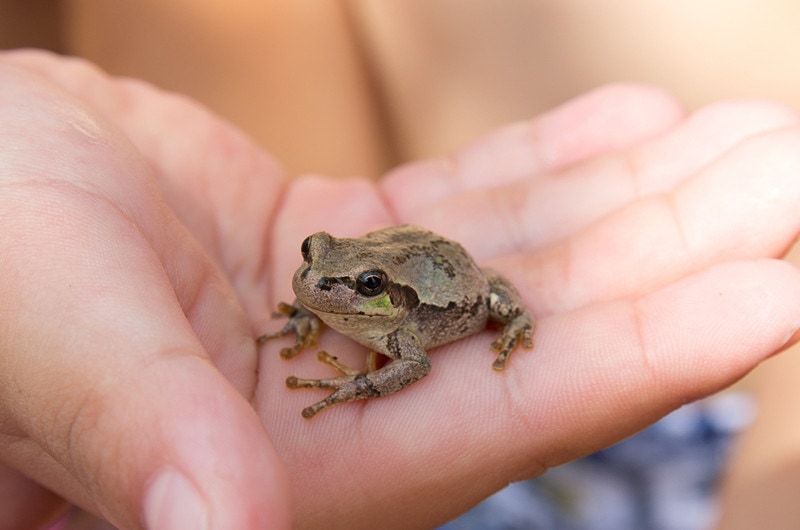
The 3 Cons of Keeping Frogs as Pets
1. Environmental Sensitivity
One of the biggest downsides of keeping frogs as pets is that they are sensitive to their environment. Maintaining an optimal habitat for a frog requires careful monitoring of temperature, humidity, and lighting, which may involve investing in specialized equipment. Additionally, some frog species have specific dietary needs and may require a constant supply of live food, which can be inconvenient or uncomfortable for some owners.
2. Limited Interaction and Bonding
Unlike cats or dogs that can form strong bonds with their owners, frogs are not known for their social nature. They are generally solitary creatures that do not seek companionship or show affection, and your interactions with them will mainly be through observing and feeding. Therefore, if you are looking for a pet to keep you company, a frog may not be for you.
3. Steep Learning Curve
Caring for frogs can be more demanding than caring for conventional pets. Due to their unique requirements, owning a frog requires expertise and experience in amphibian care so you can set up the proper habitat and provide the necessary care to keep them healthy.

The 9 Things to Consider Before Purchasing a Frog
1. Check the laws
Check your local laws and regulations regarding the ownership of frogs as pets. Some species may be protected or prohibited in certain areas.
2. Frogs can live long
Frogs can live for several years, and some species can even live for a few decades. Consider the long-term commitment required to care for a frog throughout their lifespan.
3. They may need specialized vet care
While frogs are generally hardy creatures, they can still get sick or develop health issues. Research reputable exotic veterinarians in your area who can provide proper care and treatment for your pet.
4. Frogs can be loud
Some frog species are known for their vocalizations, especially during mating seasons, and they can often sing into the night. Consider whether you can tolerate the noise, especially if you live in close quarters or have sensitive neighbors.
5. Check if you have frog allergies
Some people may be allergic to the proteins found in frog skin secretions. So, if you or someone in your household has allergies, be sure to consider this potential risk before bringing a frog into your home. It is worth noting that these allergies are rare, but have been documented in some individuals.
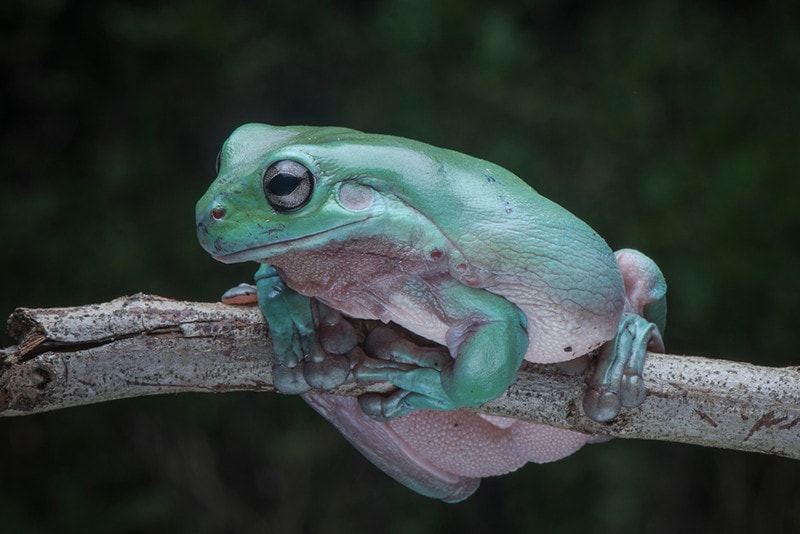
6. Do you already have other pets?
If you have other pets, consider their compatibility with frogs. Some animals, like cats, may see frogs as prey. Ensure that you can keep your frog safe while they’re living in your home.
7. Check all the supplies you will need
Before bringing a frog home, check the availability of the necessary supplies in your area, such as appropriate food, live insects, terrarium equipment, water treatments, and other essentials.
8. Check if your frog is not wild
Make sure the frogs that you are considering purchasing are captive-bred and not taken from the wild. Supporting responsible breeders helps protect wild populations and ensures the health and well-being of the frogs that you bring home.
9. Assess your capabilities
Assess your available time and daily routine to determine if you can accommodate the specific needs of a frog. For example, frogs may require regular feeding, tank cleaning, and environmental monitoring, so ensure that you have the time to perform those tasks.
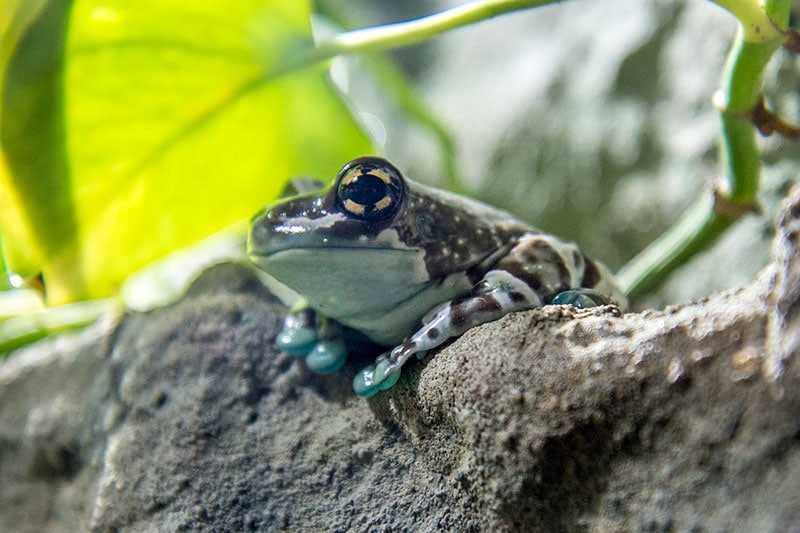
Conclusion
The suitability of frogs as pets depends on your lifestyle, commitment, and experience. While they have certain advantages, such as low maintenance and high educational value, they also come with various challenges, such as specific environmental needs and limited interaction. If you are willing to invest the time and effort required to meet the unique demands of frog ownership, they can be fascinating and rewarding companions, and they are available in all shapes, sizes, and colors. That said, you may need to look elsewhere if you want a pet for companionship and a strong bonding experience.
- Related read: Do Frogs Sleep?
Featured Image Credit: jamjoh, Pixabay

